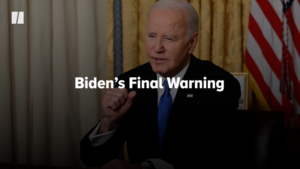Russian Disinformation Campaigns Eluded Meta’s Efforts to Block Them
A new report details how a covert influence operation linked to the Kremlin continued to place ads on Facebook despite U.S. and E.U. prohibitions on doing business with the organization.


A new report details how a covert influence operation linked to the Kremlin continued to place ads on Facebook despite U.S. and E.U. prohibitions on doing business with the organization.
A Russian organization linked to the Kremlin’s covert influence campaigns posted more than 8,000 political advertisements on Facebook despite European and American restrictions barring companies from doing business with the organization, according to three organizations that track disinformation online.
The Russian group, the Social Design Agency, evaded lax enforcement by Facebook to place an estimated $338,000 worth of ads aimed at European users over a period of 15 months ended in October, even though the platform itself highlighted the threat, the three organizations said in a report released on Friday.
The Social Design Agency has faced punitive sanctions in the European Union since 2023 and in the United States since last April for spreading propaganda and disinformation to unsuspecting users on social media. The ad campaigns on Facebook raise “critical questions about the platform’s compliance” with American and European laws, the report said.
The report follows the announcement by Facebook’s parent company, Meta, that it was changing its rules for content it allows on its social media platforms, including eliminating fact checks that flagged or removed posts. The changes will almost certainly intensify Meta’s confrontation with regulators in Europe over how it handles disinformation and other corrosive content.
The changes include lifting automatic restrictions on content regarding race and gender that could run afoul of the European Union’s Digital Services Act, which requires social media platforms to restrict illegal and harmful activities online and the spread of disinformation. The 27-nation bloc announced last year that it had launched an investigation into Meta over poor oversight of deceptive advertisements on Facebook and Instagram.
When Meta’s chief executive, Mark Zuckerberg, announced the content policies last week, he appeared to allude to the company’s regulatory fight with the European Union, appealing to President-elect Donald J. Trump to “push back against foreign governments” that he said were seeking to restrict free speech.








